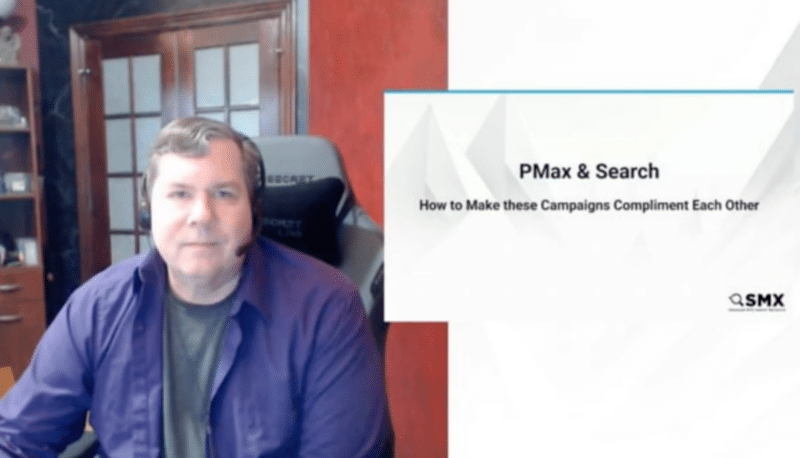
Navigating the Conflicts Between Performance Max and Traditional Search Campaigns
In the rapidly evolving landscape of digital marketing, mastering the intricacies of different advertising strategies is paramount. In a recent session at SMX Next, Brad Geddes, the co-founder of Adalysis, illuminated the growing tensions between Google’s Performance Max (PMax) campaigns and traditional search campaigns. Marketers are increasingly finding themselves at a crossroads, as overlapping search terms between these two methods create inefficiencies that can severely impact account performance. How can one navigate these challenges to ensure better outcomes?
Geddes highlighted that both Performance Max and search campaigns often vie for the same keywords, which can lead to conflicting priorities when it comes to ad visibility. With a staggering 45% of search terms in PMax mirrored in search campaigns, this overlap not only results in fewer impressions for search ads but also plays a role in diminishing click-through and conversion rates. To enhance their effectiveness, marketers need to regain control over their keyword strategies.
Among the most pressing issues identified by Geddes is the disarray resulting from poor ad group organization. He pointed out that Google’s responsive search ads often misalign results, hence advocating for marketers to establish specific ad groups rooted in a thorough analysis of search terms. This strategy alone could potentially triple conversions without incurring additional costs. Furthermore, manually incorporating high-performing search terms as keywords into search campaigns is vital, moving away from total reliance on Google’s automated suggestions.
Another recommendation pertained to the careful examination of Google’s recommendations. Removing similar keywords as suggested by Google could inadvertently result in PMax dominating search campaigns, prompting the need for a more refined approach. Moreover, marketers must be vigilant regarding their Auto Apply settings, as these settings could lead to the removal of essential keywords that are key to seasonal campaigns, jeopardizing their overall effectiveness.
In searching for effective solutions, paying close attention to budget allocations and bid strategies across PMax and search campaigns is crucial. Geddes underlines that differing bid methodologies can lead to inefficiencies, echoing the necessity for alignment in campaign parameters such as geographical targets and scheduling.
In addition to these strategies, exploring technologies related to URL shortening could enhance link management for campaigns. Utilizing URL shorteners not only facilitates easier tracking of campaign links but also ensures custom domains can offer a branded user experience. Tools like Link Shortener and Short Link Manager can prove invaluable in condensing cluttered URLs, which is particularly beneficial during campaigns where appearance and clarity can influence engagement rates.
While the challenges posed by overlaps between search and PMax campaigns can be formidable, the adoption of efficient monitoring tools, such as Adalysis, can greatly assist marketers in managing their keyword allocations. By focusing on overlap evaluations, relevant keyword creation in search campaigns, and maintaining consistent campaign settings, significant improvements in performance can be achieved.
As a final note, the future of Performance Max looks promising, particularly for smaller accounts that may benefit from its capacity to augment ad coverage. Advertisers should not feel pressured to adopt PMax immediately, but instead consider integrating it thoughtfully into their overall strategy.
In conclusion, through adept keyword management, strategic organization, and vigilant monitoring, marketers can successfully navigate the convoluted landscape created by Performance Max and traditional search campaigns—ultimately improving efficiency and boosting advertising outcomes in a competitive environment.
#BitIgniter #LinksGPT #UrlExpander #UrlShortener #DigitalMarketing #AdStrategies
Mehr erfahren: Weiterlesen

